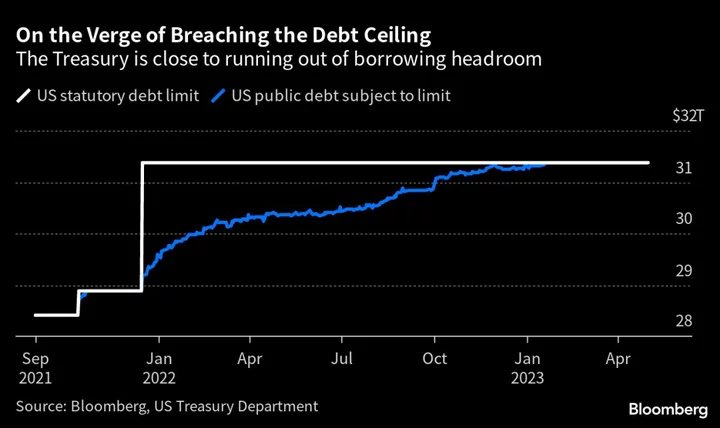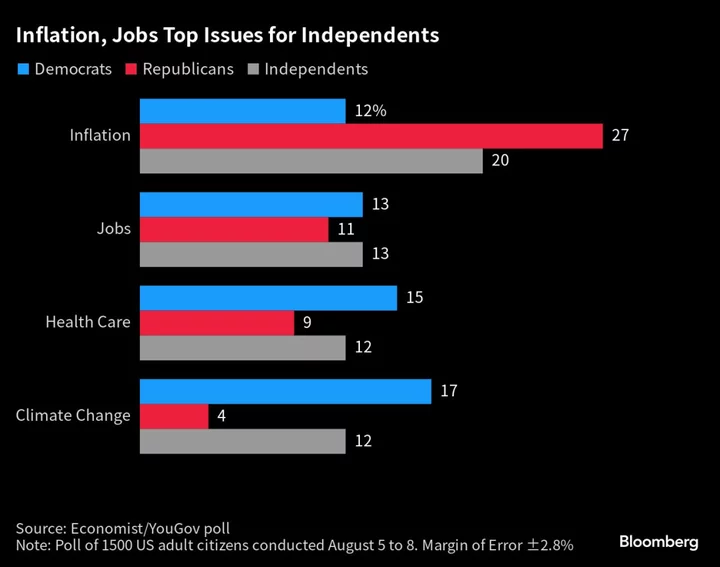Earnings season is officially underway, which means the CEOs of America's largest banks get to update the public about the health of their firms and their economic outlooks.
So far, they're largely using the opportunity to kvetch about the rules regulating their industry.
What's happening: Big banks kicked off second quarter corporate reports with a bang -- mostly beating analyst earnings expectations (that's not saying too much, as the bar was set fairly low this time around.)
Investors, worried about the economic atmosphere and the recent regional banking collapse, breathed a sigh of relief at the results. The banking sector of the S&P 500 shot up by 6.3% over the past seven days. That's a big shift -- the sector is still down 3.4% this year, according to FactSet data.
The CEOs of these banks seemed to take their strong earnings reports in the face of the failure of Silicon Valley Bank, tightening credit and higher interest rates as a sign that no further regulation of their industry is necessary.
Jamie Dimon, head of JPMorgan Chase, commented on the bank's Friday earnings call that non-bank financial rivals were "dancing in the streets" as regulators get ready to increase bank capital requirements.
"This is great news for hedge funds, private equity, private credit, Apollo, Blackstone," Dimon said of the proposed regulations.
"We think the capital increases are excessive and it puts pressure on returns," said JPMorgan CFO Jeremy Barnum on the same call. "That obviously puts pressure on us to increase prices where we can. That is generally a bad thing for the real economy."
US regulators are preparing to release plans for a long-awaited overhaul of capital requirement rules for banks, known as the Basel III Endgame, next week. Officials have said the changes could mean that banks have to hold on to as much as 20% more in capital. The change, they say, will increase the financial system's resilience following the failures of three regional banks earlier this year.
Dimon, Barnum and other bank executives, don't agree. And they're not shy in speaking up about it. These requirements are supposed to be global, but CEOs say that they're concerned the standards for US banks are higher than they are internationally -- limiting US competitiveness abroad.
"The capital in the industry is sufficient," said Bank of America CEO Brian Moynihan on his company's earnings call Tuesday morning. "They've (officials) got to think through the downside of some of these rules," he said, adding that the rules will decrease the competitiveness of banks and could slow the economy.
"A 10% increase in our capital levels would disable us from making about $150 billion of loans at the margin," he said.
In an interview with CNBC on Tuesday, outgoing Morgan Stanley CEO James Gorman said he believed there were "intellectual inconsistencies," in the soon-to-be-proposed regulation and that he would challenge and be "forceful" about what he and his bank see as wrong during the comment period.
Why it matters: Senate Democrats, especially Massachusetts Senator Elizabeth Warren, Connecticut Senator Richard Blumenthal and Illinois Senator Tammy Duckworth, have said that strengthening capital requirements is necessary to ensure the resiliency and safety of the US banking system.
In a recent letter to regulators, they said forcing banks to keep more cash and other liquid assets on hand will help protect consumers and keep the banking system operating smoothly.
The failures of Silicon Valley Bank and Signature Bank, they said, were directly tied to big banks' "cynical efforts to weaken our regulatory framework."
Federal Deposit Insurance Corporation Chairman Martin Gruenberg said in a speech in June that "history has proven that insufficient capital can lead to harmful economic results when banks are unable to provide financial services to households and businesses," Increasing the amount of capital banks must hold, he said, "provides a long-term benefit to the economy."
The US is gearing up for a battle between bank regulators and bank executives. Whoever comes out on top will shape the scope of the US banking industry for years to come.
Only 1% of US homes have changed hands this year: Redfin
This is the worst first half of a year for US home buying and selling in at least a decade.
About 14 out of every 1,000 homes (that's 1.4%) changed hands in the first six months of 2023 compared to 19 of every 1,000 during the same period in 2019, found a new Redfin report.
Prospective homebuyers have 28% fewer homes to choose from now than they did before the pandemic.
Mortgage rates were sitting just under 7% while US home prices neared record highs in June, according to the report. Housing inventories, meanwhile, were nearly at all-time lows.
"The quick increase in mortgage rates created an uphill battle for many Americans who want to buy a home by locking up inventory and making the homes that do hit the market too expensive. The typical home is selling for about 40% more than before the pandemic," said Redfin Deputy Chief Economist Taylor Marr.
The turnover rate, found the report, is at its lowest in suburban areas: 16 of every 1,000 large suburban houses changed hands in the first half of this year. That's two-thirds as many as in 2019.
Retail sales rose in June for third straight month
Americans may be running out of money, but they're not letting that stop them from spending.
Spending at US retailers rose in June for the third month in a row, reports my colleague Bryan Mena.
Retail spending, which is adjusted for seasonality but not inflation, rose 0.2% in June, the Commerce Department said Tuesday.
Still, sales grew at a slower pace than the prior month's revised 0.5% increase and came in below economists' expectations of a 0.5% gain. This month's sales represent the second weakest growth rate of 2023.
But this "isn't a terrible outcome," said Neil Saunders, managing director of GlobalData. "For one thing, consumers are still digging deeper and spending more, which makes the decline of April now look like a blip rather than a trend. For another thing, the numbers were dragged down by the lower price of gas, which resulted in sales at gas stations declining by a sharp 22.4%."
Still, the deflationary drop in food and gas prices hasn't led to an increase in discretionary spending, he said. That could be a concerning signal that consumers are starting to reign in their spending and hunker down.









